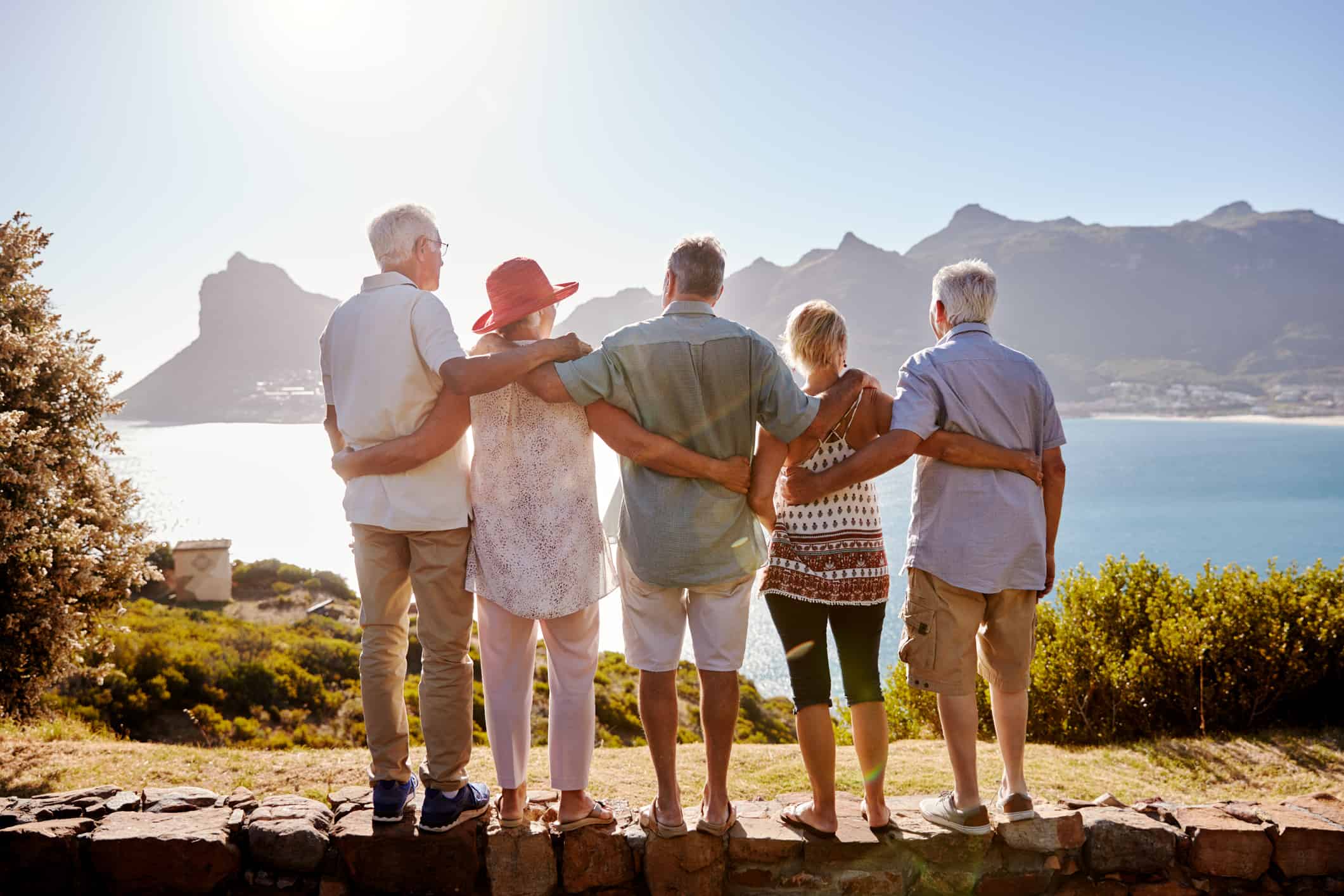Senior travel companies are experiencing a surge in demand as the global population ages. This burgeoning sector caters to a diverse clientele with varying needs and preferences, from budget-conscious retirees seeking relaxing cruises to adventurous seniors exploring exotic locales. Understanding this market requires a nuanced approach, considering factors like age, activity levels, health concerns, and technological proficiency. This exploration delves into the strategies, challenges, and innovations shaping the future of senior travel.
The industry is marked by a dynamic interplay between established players and emerging niche operators. Companies are constantly adapting their offerings to meet the evolving needs of older travelers, incorporating accessibility features, personalized itineraries, and technologically advanced solutions. Marketing strategies must also evolve, leveraging both traditional and digital channels to reach this discerning demographic effectively. Crucially, safety and responsible travel practices are paramount, requiring a proactive approach from both companies and individual travelers.
Addressing Safety and Health Concerns in Senior Travel: Senior Travel Companies
Senior travel presents unique challenges, demanding a proactive approach to safety and health. Companies specializing in this market must address potential risks to ensure the well-being and peace of mind of their clients. Failure to do so can lead to negative experiences, reputational damage, and legal liabilities.
Medical Emergencies and Evacuation Planning
Medical emergencies are a significant concern for senior travelers. Pre-existing conditions can exacerbate travel-related stresses, and the unfamiliar environment can complicate access to appropriate healthcare. Comprehensive medical evacuation plans are crucial. These plans should include 24/7 access to medical assistance, pre-trip health assessments to identify potential risks, and clear protocols for handling emergencies, including transportation to appropriate medical facilities and communication with family members.
For example, a company might partner with a specialized medical assistance provider offering global coverage and rapid response times, ensuring swift evacuation to the nearest suitable hospital in case of a heart attack or stroke during a tour of Machu Picchu. Detailed protocols for contacting emergency services in various countries, translated instructions, and designated emergency contacts are essential components of a robust plan.
Travel Insurance and Coverage
Adequate travel insurance is paramount. Policies should cover medical emergencies, trip cancellations, lost luggage, and other unforeseen circumstances. Senior-specific policies often offer broader coverage for pre-existing conditions and higher medical expense limits, reflecting the increased health risks associated with older age groups. For instance, a policy might cover the cost of repatriation in case of a serious illness requiring specialized treatment unavailable in the destination country, mitigating a significant financial burden on both the traveler and their family.
Companies should clearly Artikel the insurance options available, highlighting the specific benefits and limitations of each plan, and provide easy-to-understand documentation.
Accessibility Issues and Accommodations
Accessibility is a critical consideration. Many seniors have mobility limitations, requiring accommodations in transportation, lodging, and tour activities. This includes wheelchair accessibility on buses and airplanes, accessible hotel rooms, and modified tour itineraries to avoid excessive walking or strenuous activities. For example, a tour of historical sites could be adjusted to include shorter walking distances, the use of accessible transportation like golf carts, and alternative routes that minimize physical exertion.
Companies should proactively assess accessibility at all locations included in their tours and offer clear information about the level of accessibility provided. This could involve detailed descriptions of accommodations and transportation, alongside high-quality photographs showing accessibility features.
Technological Innovations in Senior Travel

The travel industry is increasingly leveraging technology to cater to the specific needs and preferences of senior travelers, resulting in safer, more convenient, and enriching experiences. This technological evolution is not merely about convenience; it’s about enhancing accessibility, improving communication, and ultimately, empowering older adults to explore the world with greater confidence and independence.Technology plays a multifaceted role in shaping the senior travel experience, impacting every stage from planning to post-trip reminiscing.
From sophisticated online booking platforms to personalized mobile applications and wearable health trackers, innovation is transforming how seniors plan, book, and enjoy their journeys. This shift is driven by both the increasing tech-savviness of older adults and the proactive efforts of travel companies to meet the evolving demands of this significant demographic.
Mobile Applications and Online Booking Platforms
Many travel companies now offer user-friendly mobile applications and websites specifically designed for seniors. These platforms often feature larger fonts, simplified navigation, and intuitive interfaces to accommodate varying levels of digital literacy. Features such as real-time trip updates, integrated translation tools, and emergency contact options provide peace of mind and enhance accessibility. For example, a hypothetical app, “Silver Trekker,” might offer pre-selected itineraries tailored to specific health conditions, detailed accessibility information for attractions, and a built-in medical alert system.
Another example is a website that simplifies the booking process by eliminating unnecessary steps and offering clear, concise information about each travel package.
Wearable Technology and Accessibility Enhancements, Senior travel companies
Wearable technology, such as GPS trackers and smartwatches, are increasingly being incorporated into senior travel packages to enhance safety and provide peace of mind for both travelers and their families. These devices can provide real-time location tracking, emergency SOS features, and even fall detection capabilities. In addition, many travel companies are investing in accessibility enhancements, such as providing wheelchair-accessible transportation and accommodations, and offering audio-guided tours for visually impaired travelers.
For instance, a tour operator specializing in senior travel might partner with a wearable technology provider to offer GPS trackers with fall detection, integrated with a 24/7 emergency response service. This would provide immediate assistance in case of an accident or emergency.
Benefits and Challenges of Technological Integration
The benefits of incorporating technology into senior travel services are numerous, including increased convenience, improved safety, and enhanced accessibility. However, there are also challenges. One major hurdle is the digital divide, as not all seniors are equally comfortable with technology. Another challenge lies in ensuring that technological solutions are truly user-friendly and intuitive, catering to a diverse range of technical skills and physical abilities.
Furthermore, data privacy and security are paramount concerns, requiring robust measures to protect sensitive personal information. Successfully addressing these challenges requires a collaborative approach, involving travel companies, technology developers, and senior advocacy groups.
The senior travel market presents a significant opportunity for growth and innovation. As the population continues to age, companies that successfully address the unique needs and preferences of older travelers, prioritizing safety, accessibility, and sustainable practices, are poised for success. The future of senior travel hinges on a collaborative effort, involving travel providers, technology developers, and the senior travelers themselves, to create enriching and memorable experiences.
Finish your research with information from forces discount holidays.


